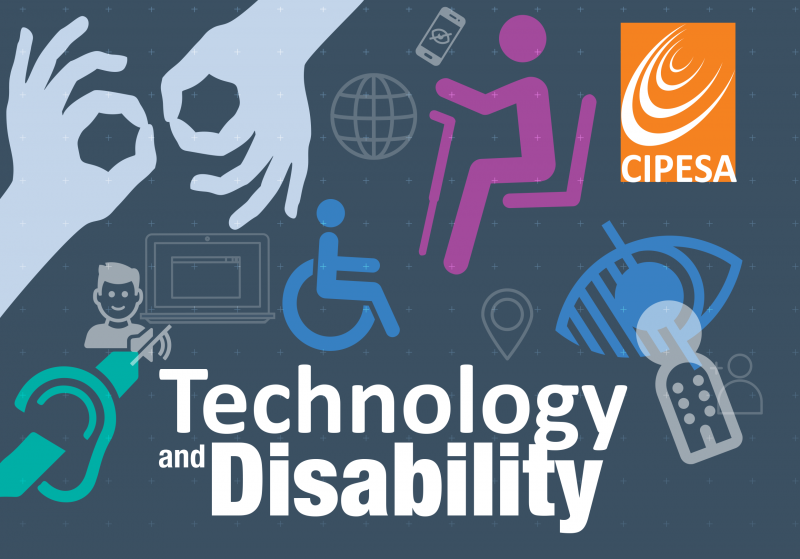By Edrine Wanyama |
The International Day of Persons with Disabilities (IDPD) has been observed every December 3 since 1992. The annual event aims to “promote the rights and well-being of persons with disabilities in all spheres of society and development, and to increase awareness of the situation of persons with disabilities in every aspect of political, social, economic and cultural life.”
The theme for 2020 was “Building back better: towards an inclusive, affordable, accessible and sustainable post COVID-19 world by, for and with persons with disabilities”. This is in line with the 2030 Agenda for Sustainable Development Goals (SDGs), which pledges to leave no one behind, and five of whose goals outline inclusion of persons with disabilities.
In the past year, the Collaboration on International ICT Policy for East and Southern Africa (CIPESA) has highlighted the need to remove barriers to ICT accessibility for persons with disabilities in Kenya, Tanzania and Uganda. Likewise, it has called for greater access to information for persons with disabilities, especially during the COVID-19 pandemic. Further, CIPESA has pointed out the need for telecommunications service providers, governments and donors to do more to promote ICT accessibility for persons with disabilities in Africa.
CIPESA is now shining the spotlight on the African Union Commission (AUC), the African Telecommunications Union (ATU) and the East African Communications Organisation (EACO) as critical regional bodies with mandates to promote inclusive, affordable, accessible and sustainable information and communications technology (ICT) for persons with disabilities.
In separate letters addressed to the three organisations on International Day of Persons with Disabilities (IDPD), CIPESA acknowledges their critical roles, and that of their respective members, in promoting the rights of persons with disabilities in the digital sphere.
Specifically, the letters recall these organisations’ obligation to protect and advance the rights of persons with disabilities in line with the African Charter on Human and Peoples’ Rights, the United Nations’ Convention on the Rights of Persons with Disabilities and its Optional Protocol, the Treaty to Facilitate Access to Published Works for Persons Who Are Blind, Visually Impaired or Otherwise Print Disabled (the Marrakesh Treaty); the SDGs; and the Protocol to the African Charter on Human and Peoples’ Rights on the Rights of Persons with Disabilities in Africa (the Protocol).
The Protocol is critical for the promotion and effective protection of the rights of persons with disabilities. However, it is yet to be ratified by any African Union (AU) Member State and only has nine signatories – Angola, Burkina Faso, Cameroon, Central African Republic, Gabon, Mali, Rwanda, South Africa, and Togo.
The Protocol calls upon AU Member States to take “effective and appropriate measures to facilitate full enjoyment by persons with disabilities of the right to access “information, communications, sign language and tactile interpretation services, braille, audio and other services, including electronic services and emergency services.” Further, the Protocol calls upon States to ensure that persons with disability have access to quality and affordable mobility aids and assistive devices or technologies.
Despite states’ obligations in regional instruments, the letters point to continued inequality in accessing assistive technologies such as screen readers, screen magnification software, text readers, and speech input software; and digital inaccessibility of websites mobile applications and services. e.
In the advent of the Covid-19 pandemic, the digital exclusion of persons with disabilities has deepened, as many cannot access vital information on the pandemic, lack access to education and remote working opportunities, which increasingly require the use of ICT..
The recommendations made in the letters include the following:
- Ratify the Protocol to the African Charter on Human and Peoples’ Rights on the Rights of Persons with Disabilities in Africa as a matter of utmost priority, and promote awareness on its content and the rights it protects.
- Provide incentives for innovation and investment in accessible ICT products and services, such as software solutions and accessible handsets and mobile devices.
- Offer tax exemptions on handsets and mobile devices tailored to the needs of persons with disabilities.
- Support the implementation of the International Telecommunications Union (ITU) Resolution 175 on Telecommunication/information and communication technology accessibility for persons with disabilities and persons with specific needs.
- Ensure that information on COVID-19 is inclusive and provided in accessible and appropriate formats and languages.
- Support the development, implementation and enforcement of relevant and enabling national policies and legislation on accessible communication products and services such as disability laws, Codes of Practice, consumer rights regulations, and ICT and disability policies.
- Promote awareness on, and access of persons with disabilities to specialist devices and technologies such as manual Perkins Brailler, hand-held magnifiers, hand frames/slates and communication boards, screen readers, text-to-speech software and Augmentative and Alternative Communication (AAC).
- Promote the participation of persons with disabilities in decision-making and policy development processes at national and regional levels.
- Ensure the systematic collection, analysis, storage and dissemination of national statistics and data covering disability to increase the availability of high-quality, timely and reliable disaggregated data by disability, in order to facilitate the protection and promotion of the rights of persons with disabilities.
- Promote multi-stakeholder cooperation between governments, the private sector, civil society and other relevant actors to incorporate diverse perspectives and promote the rights of persons with disabilities in accordance with the Protocol.
The detailed letters can be found here: African Union Commission (AUC) letter, the African Telecommunications Union (ATU) letter, and the East African Communications Organisation (EACO) letter.

